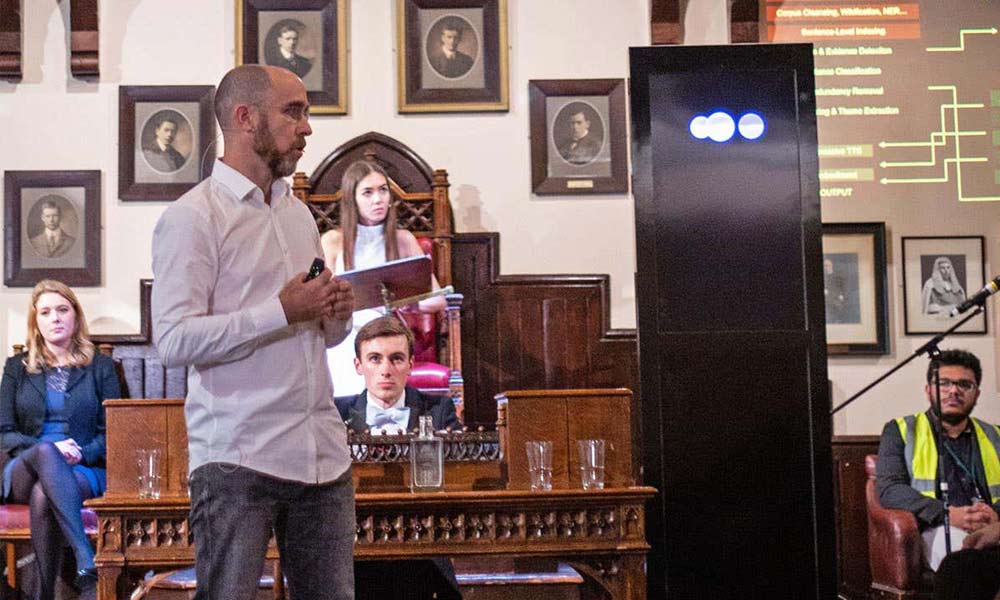Critical thinking, linking different thought, and anticipating arguments are capabilities considered unique to humans.
Humans can learn and refine these skills. But researchers have been able to develop AIs capable of mimicking these capabilities.
While the skills are tougher for AIs to master, since computers need deeper contextual thinking to learn the skills, IBM has proven that 'Project Debater' is more than what it seems to be. The robot AI is powered by IBM's cloud computing infrastructure, and has been trained with hundreds of millions of documents, and capable of extracting relevant details to construct an argument.
When AI is a concern, there are two opposing sides: one that argues AI is the future, and the other that fears the technology, thinking that computers would become some smart that they would replace humans as the smartest in the world, creating a possible dystopia.
Here, Project Debater from IBM, tries to debate against itself, and humans, at the Cambridge Union in England, and narrowly convincing the audience that the technology will do more good than harm.
At the event, the AI spoke on both sides of the argument, with two human teammates for each side helping it out.

On the proposition side, the AI argues that Artificial Intelligence will bring more harm than good, saying that."AI can cause a lot of harm [...] AI will not be able to make a decision that is the morally correct one, because morality is unique to humans."
"AI companies still have too little expertise on how to properly assess datasets and filter out bias," it added. "AI will take human bias and will fixate it for generations."
On the opposing side, the AI advocated that AI can being a lot of benefits, including creating new jobs in certain sectors, as well as bringing "a lot more efficiency to the workplace".
But then it made a point that was counter to its argument, saying that "AI capabilities caring for patients or robots teaching schoolchildren – there is no longer a demand for humans in those fields either."
The pro-AI side narrowly won, gaining 51.22% of the audience vote.
To create Project Debated, the team at IBM developed the AI using 'speech-by-crowd' in order to generate its arguments, and also to analyze submissions people had given it online.
Of the 1,100 submissions, the AI classified 570 as anti-AI, or of the opinion that the technology will bring more harm to humanity than good, and 511 arguments were found to be pro-AI. As for the rest, they were irrelevant to the topic at hand.
Project Debater then sorted these into key themes, as well as identifying redundancy.
While the say the AI argues against itself is remarkable, the AI had a few slip-ups.
For example, it sometimes repeated itself, while talking about the ability of AIs to perform mundane and repetitive tasks. And also, it didn't provide detailed examples to support some of its claims.
AIs that can debate, for instance, could be used by governments seeking public opinions about policies or by companies wanting input from employees, said IBM engineer Noam Slonim.
"This technology can help to establish an interesting and effective communication channel between the decision maker and the people that are going to be impacted by the decision," he said, suggesting that speech-by-crowd AIs can be the tool for collecting feedback from large numbers of people.
Previously, Project Debater narrowly lost in a one-on-one debate against champion Harish Natarajan in February. At that time, the AI gave the opening arguments in a debate about the promise and peril of AIs.